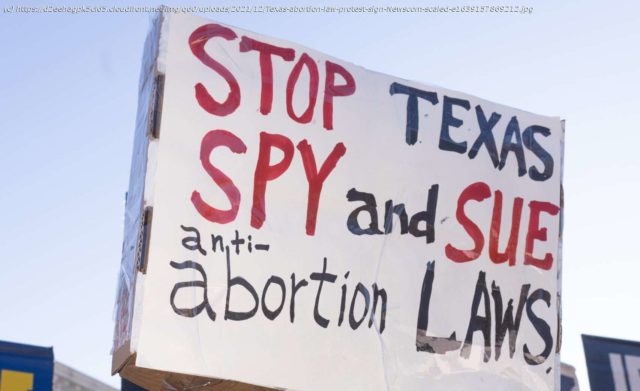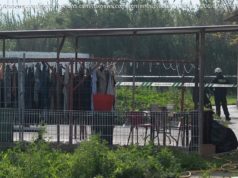District Court Judge David Peeples focused on the law’s « unique and unprecedented » enforcement mechanism rather than abortion rights.
S.B.8, the Texas law that bans abortion after fetal cardiac activity can be detected, relies on a novel enforcement mechanism that was designed to evade early judicial review: It authorizes lawsuits by « any person » against « any person » who performs or facilitates a prohibited abortion and promises plaintiffs at least $10,000 in « statutory damages, » plus reimbursement of their legal expenses, if they win. That « unique and unprecedented » arrangement, a Texas judge ruled yesterday, violates the state constitution’s standing requirements for civil actions, the separation of powers, and the right to due process. Travis County District Court Judge David Peeples was responding to 14 lawsuits challenging S.B.8, which took effect at the beginning of September. His 48-page order emphasizes how the law’s « completely new » enforcement mechanism favors plaintiffs over defendants and warns that the same strategy could be deployed against all sorts of politically disfavored constitutional rights. Crucially, Peeples says, S.B.8 plaintiffs need not claim any personal injury, and the state’s lawyers « said offhandedly, in papers filed with this court, that ‘any person’ means anyone in the world. » But in practice, he thinks, S.B.8 plaintiffs will tend to be Texas residents, because the law « modifies the usual rules » by saying that « any Texas claimant may choose to sue in the county where he lives, » as opposed to the county where the defendant lives. It says the venue can be changed only if all parties agree. In a big state like Texas, Peeples notes, « venue is especially important because it is so much more inconvenient and expensive (in terms of money and lost time) to litigate a case in a distant forum. But venue is not just about distance and inconvenience—to choose venue is also to choose the judge (or judges) and the jury pool. All this can often influence the outcome, sometimes decisively. » « SB 8 empowers some 21+million Texas adults to file enforcement cases, » Peeples notes. « Each of Texas’ 484 District Courts, many of its 256 Statutory County Courts, and all of its 840 Justices of the Peace would have jurisdiction to hear these cases. » Litigants and activists « will learn quickly which venues and courts are friendly to SB 8 suits and which are not, » he says, and » SB 8 filings will gravitate to the more favorable venues. » People who support the law and have the resources to pay for attorneys could bankroll lawsuits by like-minded Texans who live in the counties where the prospects of prevailing are strongest. S.B.8 authorizes lawsuits against anyone who « aids or abets » a banned abortion, explicitly including insurers or anyone else who pays for the procedure and implicitly including various other ancillary actors. That means the bounty can be multiplied several times in any given case. « A judgment against defendants Dr. A, Nurse B, Contributor C, and Driver D would not be simply a joint and several judgment for $10,000, collectable against any of the four defendants for a total recovery of $10,000, » Peeples says. « Instead the claimant would have a judgment against each defendant for $10,000 individually, for a total of $40,000—plus more if the court awards more, in addition to costs and attorney fees. » Peeples mentions two other features of S.
Home
United States
USA — Criminal Here Is Why a Texas Judge Concluded That the State's Abortion Ban...






